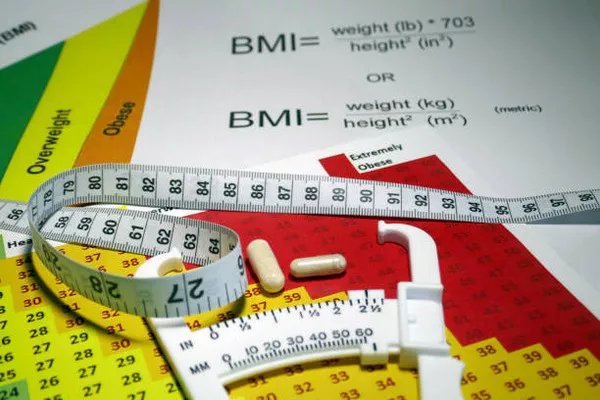In recent years, certain diabetes medications have gained attention for their potential to aid in weight loss. This article explores whether diabetes drugs are safe for weight loss, focusing on their use, benefits, risks, and overall effectiveness.
Understanding Diabetes Medications
What Are Diabetes Drugs?
Diabetes drugs help manage blood sugar levels in people with diabetes. They come in various classes, including:
- Metformin: Commonly prescribed for Type 2 diabetes, it helps lower blood sugar levels and may aid in weight management.
- GLP-1 Receptor Agonists: Medications like liraglutide (Saxenda) and semaglutide (Ozempic) fall under this category. They help regulate insulin and can promote weight loss.
- SGLT2 Inhibitors: Drugs such as canagliflozin (Invokana) assist in removing excess sugar through urine, which can lead to weight loss.
How Do These Medications Work?
- Metformin: Works by decreasing glucose production in the liver and improving insulin sensitivity.
- GLP-1 Agonists: Mimic the hormone glucagon-like peptide-1, which increases insulin release, reduces appetite, and slows gastric emptying.
- SGLT2 Inhibitors: Block sugar reabsorption in the kidneys, leading to sugar excretion in urine and resulting weight loss.
Diabetes Drugs and Weight Loss
The Connection Between Diabetes Medications and Weight Loss
Many people with Type 2 diabetes struggle with weight management. Research indicates that some diabetes medications can help with weight loss, offering additional health benefits. Weight loss can improve insulin sensitivity and blood sugar control, creating a beneficial cycle for those with diabetes.
Evidence of Weight Loss from Diabetes Drugs
Studies have shown that GLP-1 receptor agonists lead to significant weight loss in many patients. For instance, clinical trials demonstrated that participants using semaglutide lost an average of 15% of their body weight over a year. In contrast, those using metformin may experience modest weight loss of 5-10%.
Safety of Diabetes Drugs for Weight Loss
FDA Approval and Indications
The U.S. Food and Drug Administration (FDA) has approved some diabetes medications specifically for weight loss. For example, liraglutide is approved for weight management in individuals without diabetes. This approval indicates that these drugs can be safe when used appropriately.
Potential Side Effects
While many people benefit from these medications, they may not be suitable for everyone. Common side effects include:
- Gastrointestinal Issues: Nausea, vomiting, and diarrhea are common, especially when starting medication.
- Hypoglycemia: A risk when combined with other diabetes medications, causing low blood sugar levels.
- Pancreatitis: An inflammation of the pancreas, which can be severe.
- Kidney Issues: Some medications can affect kidney function.
Who Should Use These Drugs for Weight Loss?
- Individuals with Diabetes: For those already on diabetes medication, weight loss may improve blood sugar control and overall health.
- People at Risk of Diabetes: Individuals with prediabetes may benefit from weight loss to prevent diabetes onset.
- Obese Individuals: Those with a body mass index (BMI) of 30 or higher might find these medications useful in weight management.
Lifestyle Changes and Weight Loss
Importance of a Holistic Approach
While diabetes medications can support weight loss, they should not be viewed as a standalone solution. Sustainable weight loss typically involves:
- Balanced Diet: Emphasizing whole foods, fruits, vegetables, lean proteins, and healthy fats.
- Regular Exercise: Incorporating both aerobic and strength training activities.
- Behavioral Changes: Developing healthier habits and mindsets around food and activity.
Combining Medication with Lifestyle Changes
Combining diabetes medications with lifestyle changes often leads to more significant and sustainable weight loss. Medications can help control appetite and blood sugar levels, making it easier to adopt healthier habits.
See Also: Does Tricare Pay For Weight Loss Surgery
Risks of Using Diabetes Drugs for Weight Loss
Misuse of Medications
Some individuals may consider using diabetes medications without a diabetes diagnosis, seeking weight loss benefits. This practice is risky and can lead to severe side effects, including:
- Low Blood Sugar (Hypoglycemia): Taking medications without medical supervision can cause dangerously low blood sugar levels.
- Nutritional Deficiencies: Some medications may affect nutrient absorption, leading to deficiencies.
Not Suitable for Everyone
Not all individuals are good candidates for diabetes medications. Factors that may influence safety include:
- Age: Older adults may experience different side effects.
- Kidney Health: Those with kidney issues may be at higher risk for complications.
- Other Health Conditions: Individuals with a history of pancreatitis or certain gastrointestinal conditions may need to avoid specific medications.
Conclusion
Diabetes medications can be effective tools for weight loss, particularly for those with Type 2 diabetes. GLP-1 receptor agonists and other diabetes drugs offer promising results and safety when used under medical supervision. However, they should not replace lifestyle changes, which are crucial for achieving and maintaining a healthy weight.
Before considering diabetes medications for weight loss, consult a healthcare professional. They can provide personalized advice based on individual health needs and conditions. Weight loss is a multifaceted journey that requires a comprehensive approach, integrating medication, diet, exercise, and behavioral changes for long-term success.
Related Topic:
Does Humana Pay For Weight Loss Surgery


